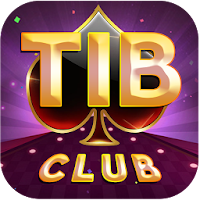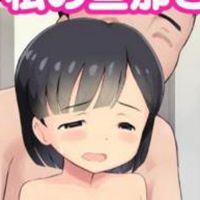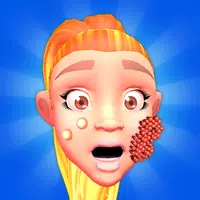2025 marks a significant year for DC, with James Gunn's Superman film set to launch the new DCU theatrically. DC Studios has an array of film and television projects in the works, and the Absolute Universe in comics is generating buzz in DC's publishing division. Amidst all the excitement for this new slate of DC universe media, a pressing question remains: What is happening with Wonder Woman? Created by William Moulton Marston and H. G. Peter, Wonder Woman is a cornerstone of the DC universe and one of the most recognized superheroes, yet her presence in recent DC franchise media has been surprisingly minimal.
Outside of the comics, Diana of Themyscira has faced numerous setbacks in recent years. Her live-action film franchise lost momentum after the mixed reception of Wonder Woman 1984. She is absent from the current DCU lineup, which instead features a show about the Amazons. Wonder Woman has never had her own animated series, and her first solo video game, announced in 2021, was cancelled. These developments raise questions about Warner Bros.' strategy for handling one of the most iconic female superheroes. Let's examine how Warner Bros. and DC might be mishandling Wonder Woman's potential.
One Hit Wonder
During the intense competition between the Marvel Cinematic Universe and the DCEU in the late 2010s, the first Wonder Woman film stood out as a major success for the latter. Released in 2017, it garnered largely positive reviews and earned over $800 million globally. Following the divisive reception of Batman v Superman and Suicide Squad, Patty Jenkins' portrayal of Diana resonated with audiences in a way that previous DC films had not. While the film had third act problems and Gal Gadot's performance focused more on poise and action rather than character depth, its success suggested the potential for a long-lasting and profitable franchise.
However, the sequel, Wonder Woman 1984, released in 2020, did not live up to expectations. It divided critics and failed to recoup its budget in theaters, partly due to its simultaneous release on HBO Max during the COVID-19 pandemic. The sequel's narrative issues, tonal inconsistencies, and controversial elements, such as Diana having sex with Chris Pine's Steve Trevor in another man's body, further alienated audiences. Despite its flaws, the decision to phase out a third film was disappointing, especially considering the frequent reboots and relaunches given to characters like Batman and Spider-Man. The lack of other Wonder Woman projects across different media has left fans wanting more.
Diana Prince, Missing in Action
With the new DCU set to launch a fresh wave of DC adaptations, one might expect Wonder Woman to be a priority. Yet, the Chapter One: Gods and Monsters slate of the DCU does not include a dedicated Wonder Woman project. Instead, DC Studios head James Gunn and producing partner Peter Safran have chosen to focus on lesser-known properties like Creature Commandos, Swamp Thing, Booster Gold, and The Authority. While there's value in exploring niche IP, it's surprising that these projects are being developed alongside new iterations of Superman, Batman, and Green Lantern, while Wonder Woman is notably absent.
DC Universe: Every Upcoming Movie and TV Show

 View 39 Images
View 39 Images



The DCU has announced Paradise Lost, a television series set in Themiscyra before Wonder Woman's birth, focusing on the Amazons. While exploring the history of the Amazons and enriching Wonder Woman's mythology is commendable, creating a show without Wonder Woman herself feels reminiscent of the Sony Marvel Universe. This raises questions about why DC Studios doesn't consider Diana the primary draw in her own franchise, especially when compared to the urgency to launch multiple Batman projects. The absence of a dedicated Wonder Woman project is all the more striking given her prominent role in the DC Animated Universe of the '90s and early 2000s, yet she never received her own animated series. In DC Universe direct-to-video animated films, she has been a regular character, but only starred in two: Wonder Woman in 2009 and Wonder Woman: Bloodlines in 2019. Given the popularity of superhero content, the lack of a dedicated Wonder Woman project is puzzling.
AnswerSee ResultsLet Me Play as Wonder Woman, Dammit
The cancellation of the Wonder Woman game in development at Monolith Productions adds to the frustration. Whether the poor performance of other DC games like Suicide Squad: Kill the Justice League and MultiVersus contributed to its demise is unclear, but the loss of Diana's first solo game feels like a missed opportunity. With character action games making a comeback, an action-adventure game featuring Diana, akin to God of War or Ninja Gaiden, seems timely. Although Wonder Woman has been playable in games like Injustice, Mortal Kombat vs. DC Universe, and various LEGO DC titles, the absence of a AAA action game starring her is glaring. DC's failure to capitalize on the success of Rocksteady's Batman Arkham series with games featuring Wonder Woman, Superman, and the Justice League is a missed revenue opportunity. It's particularly disheartening that Diana's first appearance in the Arkham timeline in Suicide Squad: Kill the Justice League results in her death as a non-playable character, while the male members of the Justice League are spared as evil clones.
The combination of a struggling film franchise, the absence of dedicated animated projects, and the lackluster representation in video games paints a picture of neglect from Warner Bros. and DC towards one of their most iconic characters. If they show such disregard for a central figure in their roster, it raises concerns about their respect for the broader DC universe. Hopefully, Gunn's Superman reboot will herald a new era of DC adaptations, moving beyond the troubled DCEU. As Warner Bros. relaunches their franchise, they must recognize the value that Diana Prince brings to their brand. After nearly a century, she and her fans deserve better.






